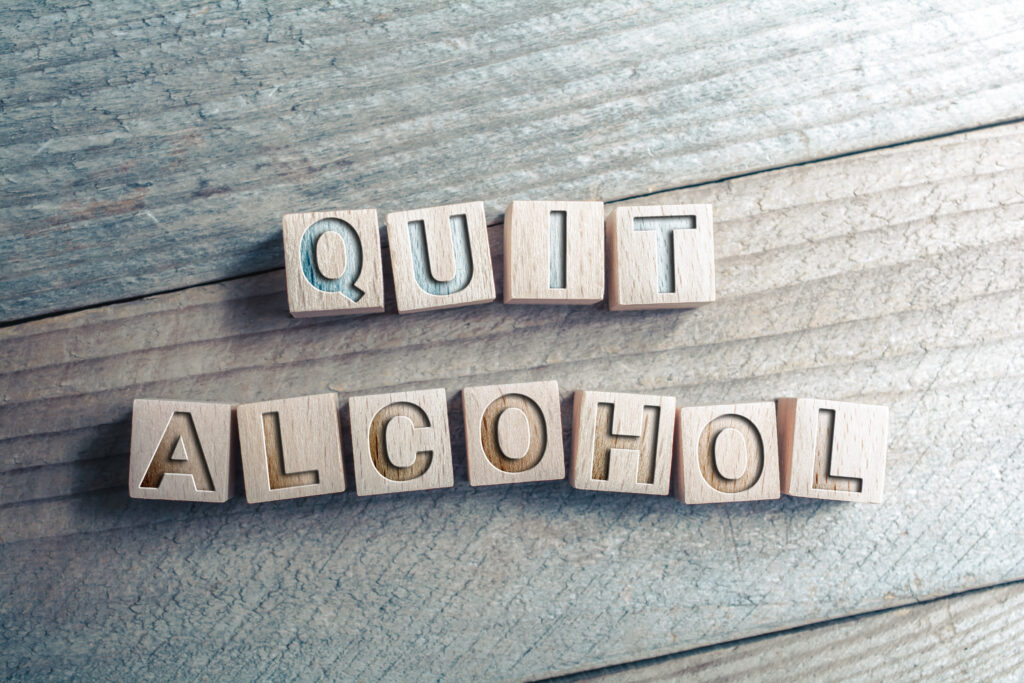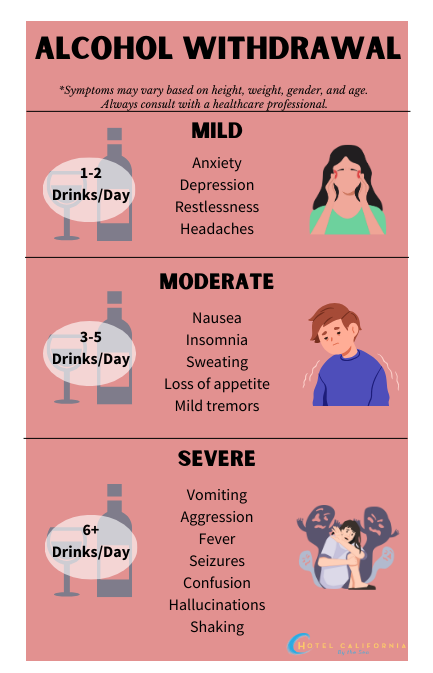Is quitting Alcohol Cold Turkey a good idea?
Alcohol use disorder is a mental health medical condition in which a person has an impaired ability to stop or control their drinking behaviors despite resulting in negative consequences. Once you have developed a dependence and addiction, quitting alcohol can be very difficult and very dangerous. Some people opt to quit drinking cold turkey. Going cold turkey is a popular phrase that describes abruptly quitting all use of substances such as alcohol, rather than stopping gradually. However, depending on the severity of the alcohol use disorder, quitting alcohol cold turkey can put you at even higher risk for dangerous and life-threatening side effects.

There are many benefits to quitting alcohol. Some of these include better sleep, better-looking skin, healthier weight, enhanced mental health, a better immune system and improvements in memory and cognition. Oftentimes, people believe that they can easily quit alcohol on their own and that going cold turkey is an easy option. Depending a several factors, quitting alcohol cold turkey can jeopardize your health and progress in overcoming your alcohol use disorder.
Alcohol is a substance that is quickly metabolized. When you stop drinking on your own, you will experience withdrawal symptoms within 12 hours after the last drink. Some can even experience dangerous withdrawal symptoms. An estimated 10% of people will have life-threatening withdrawal symptoms from alcohol use disorder. Because of the unpredictability of quitting alcohol, it is important to quit or detox from alcohol under the care and supervision of a medical professional and a dedicated medical detox program. Quitting alcohol cold turkey is not worth the risk.
The Impact of Alcohol Use Disorder
Alcohol use disorder can lead to severe withdrawal symptoms when use has suddenly stopped or drastically decreased. The symptoms usually peak in intensity during the second day and slowly taper down by the fourth and fifth days.
Alcohol withdrawal severity and duration are also dependent on many different factors. Factors can include the duration of an alcohol use disorder, the amount of alcohol that is regularly consumed, the state of mental and physical health, any previous alcohol withdrawal experiences, individual biology and genetics and the presence of polysubstance misuse.
Quitting alcohol on your own can lead to unpredictable and dangerous symptoms which if not properly treated can lead to life-threatening situations. Symptoms range from mild to severe. These symptoms include anxiety, nausea, vomiting, confusion, sweating, rapid pulse, irritability, restlessness, tremors, hallucinations and seizures. The more serious side effects include delirium tremens, protracted withdrawal and kindling.

Dangerous side effects that can occur when quitting Alcohol cold turkey
Delirium Tremens (DT)
A serious side effect of alcohol withdrawal syndrome is also known as delirium tremens (DT). Less than 25% of people with alcohol withdrawal syndrome can develop DT and up to 2% of people with DT can die from the condition. Risk factors for DT include abnormal liver functions, brain lesions, dehydration, electrolyte imbalance, co-occurring mental health conditions, drinking heavily every day, a person’s age and if the person has a history of withdrawal seizures or DT.
Kindling
Kindling is a term used to describe when a person’s alcohol withdrawal symptoms worsen each time they attempt to quit drinking. The reason behind the steady decline is due to the body’s sensitivity to the stresses that come with quitting. Stresses that are both physical and mental can significantly impact the person’s overall ability to endure withdrawal from drinking. Kindling can also increase the risk of relapse during withdrawal as well as increase the risk of death during withdrawal. Kindling can be a very dangerous condition of trying to quit alcohol cold turkey.
Protracted Withdrawal
Protracted withdrawal occurs when acute withdrawal resolves and you are left with lingering symptoms for several months or years after initially detoxing from alcohol. Symptoms of protracted withdrawal include insomnia, anxiety, autonomic dysfunction, problems and difficulty thinking and concentrating, hostility, irritability, depression, mood swings, and unexplained physical pain.
Check Your Insurance Coverage for FREE
Find out if your insurance covers addiction treatment in minutes. We accept most insurance!
How to cut back, improve drinking habits or quit drinking Alcohol
- Examine alcohol and its effects on your health. Oftentimes, drinking alcohol can cause disrupted sleep, digestive issues, memory impairment, increased anxiety and depression, and can also affect your relationship with friends and family.
- Explore your relationship with alcohol. How much do you actually drink? Keep track of your drinking habits by writing them down. When do you drink, how often do you drink, where do you drink and who do you drink with are factors to take note of. Consider writing down a list of reasons why you should quit drinking. You can also identify any triggers such as relationship stress, social pressure, or sleeping issues that contribute to your drinking habits.
- Consider a new and different approach to your relationship with alcohol. Make more mindful decisions related to alcohol use. You can set drinking goals. You can set limits on how much you drink or what you can drink. Writing down and setting goals can help you stay persistent and motivated to change your drinking habits.
- Consider getting rid of alcohol from your house to avoid any temptations to drink.
- Have alcohol-free days or weeks.
- Change your environment. Keep busy by learning new activities. Stay away from or avoid places and people that are associated with your drinking or alcohol.
- Talk about it and reach out for support. Talking about it with others and asking for support can be extremely helpful. You can speak with family, friends, and support groups, or seek out professional counseling and therapy. You can also speak to your primary care provider to help you find options for support.
- Create a plan for when you have cravings or for potential relapse.
- Prepare for alcohol detox. Quitting alcohol cold turkey could lead to serious and unpredictable withdrawal symptoms. It is best to detox in a professional clinical setting under the care of medical professionals who can help alleviate and treat alcohol withdrawal symptoms.
Should you quit Alcohol cold turkey?
The short answer is no. Quitting alcohol cold turkey could lead to unpredictable and life-threatening withdrawal symptoms such as DT and kindling. Without the care and safety of being under medical supervision during alcohol detox, patients are at a much higher risk for developing deadly side effects including the risk of relapse.
Detoxing under the care of a medical detox facility can help lessen the severity of withdrawal symptoms. Medications can be used in order to help ensure your safety. When deciding to quit alcohol, changes cannot be made overnight. Detoxing is a gradual process, especially when it comes to detoxing from alcohol.
Reach out to Hotel California by the Sea
We specialize in treating addiction and other co-occurring disorders, such as PTSD. Our Admissions specialists are available to walk you through the best options for treating your addiction.
Looking for Treatment for Alcohol Addiction?
Hotel California by the Sea provides a safe and structured environment for all clients looking to quit alcohol. Long-term alcohol use can result in serious physical and mental health conditions. There is a higher risk for dementia, stroke, cancers, liver disease and other cardiovascular problems. Although we cannot assist in quitting alcohol cold turkey, we do provide evidence-based treatments and utilize effective methods to help clients overcome their alcohol use disorder. We offer all levels of care including alcohol detox, inpatient residential and outpatient programs for alcohol use disorder.
Clients will also have access to medication management, CBT, DBT and group therapy treatments. Hotel California by the Sea believes in treating all aspects of alcohol addiction and developing individualized care plans for each client. All of our clients will receive the care, support and resources to overcome their alcohol addiction.
References:
https://www.healthline.com/health/alcohol/how-to-stop-drinking
https://www.newsweek.com/how-stop-drinking-cold-turkey-1759473
https://www.hazeldenbettyford.org/articles/how-to-stop-drinking
https://www.goodrx.com/conditions/alcohol-use-disorder/how-to-stop-drinking
https://www.bicyclehealth.com/blog/dangers-of-quitting-alcohol-cold-turkey
https://www.helpguide.org/articles/addictions/overcoming-alcohol-addiction.htm
